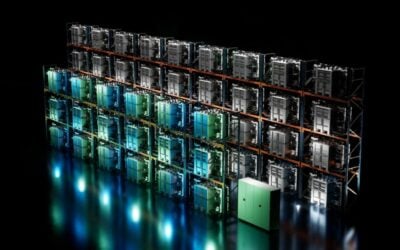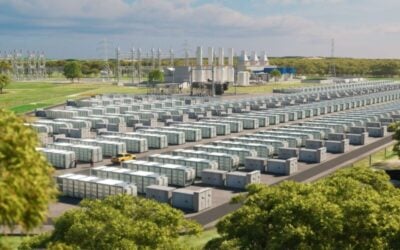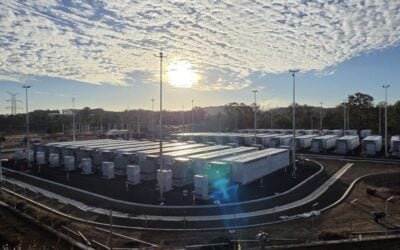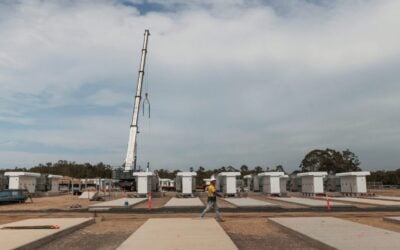
The first community battery energy storage system (BESS) has been switched on as part of the ‘Power Melbourne’ initiative in Victoria, Australia.
The City of Melbourne Council revealed yesterday (26 June) that the community battery was turned on at Council House. To grow Power Melbourne’s pilot network, more batteries will be installed at Boyd Community Hub in July and Library at the Dock later this year.
The newly installed battery system has a capacity of 450kW/1.1MWh with the council targeting 5MW of similar assets.
Community batteries are BESS resources connected to the electricity network at distribution level, and the idea is that it helps communities share the benefits of locally deployed rooftop solar PV while easing congestion on their local grid.
Try Premium for just $1
- Full premium access for the first month at only $1
- Converts to an annual rate after 30 days unless cancelled
- Cancel anytime during the trial period
Premium Benefits
- Expert industry analysis and interviews
- Digital access to PV Tech Power journal
- Exclusive event discounts
Or get the full Premium subscription right away
Or continue reading this article for free
First revealed in 2021, the Power Melbourne initiative aims to create a network of neighbourhood-scale batteries will be coordinated to deliver sustainable energy back into the grid when it is needed most.
The BESS asset was enabled through a partnership with Origin Zero, signed in January 2024.
Melbourne Lord Mayor Sally Capp said the project would “accelerate the city’s transition to renewable energy, while driving new investments and creating jobs”.
“Power Melbourne aims to deliver lower power bills and greener energy for businesses and residents in the City of Melbourne by capturing solar energy, storing it and feeding it back into the community,” Capp said.
Community batteries grow in popularity across Australia
Community batteries have seen a surge in popularity over the course of the past five years. In 2021, the same year the Power Melbourne initiative was announced, saw an inflection point as initial trial deployments began to be replaced with wider rollouts.
One such trial project was the Alkimos Beach Energy Storage Trial (ABEST) in Western Australia. The five-year-long project trialed the use of energy storage at a community scale in a Western Australian suburb, with the results finding an 85% reduction in energy consumption from the grid at peak times for participating households.
Similarly to the Power Melbourne initiative, ABEST collectively used a 1.1MWh lithium-ion community BESS.
Community battery schemes are typically coordinated either by state government agencies or local distribution network providers in states including Victoria, Queensland, New South Wales and Western Australia.
Market consultancy group Sunwiz also weighed in on the potential of community BESS in Australia, which it dubbed the “Year of the Big Battery”. The group said adding that community battery—or ‘neighbourhood battery’ projects around Australia, classified within the commercial and industrial (C&I) segment—will help drive a 50% growth in C&I installs in 2024.
In late 2023, an Australian Renewable Energy Agency (ARENA) programme to put AU$120 million (US$78.17 million) towards community battery storage received applications for more than ten times that amount, showcasing the rising popularity of the technology.
In total, AU$171 million from a pot of AU$200 million in the federal Department of Climate Change, Energy, the Environment and Water’s (DCCEEW’s) Household Solar Budget and its Community Batteries for Household Solar scheme will be contributed to project costs, aiming to deploy at least 342 battery installations.
The idea is that kickstarting community battery projects across Australia will “provide valuable knowledge that can be shared across Australia to fast track the implementation of these local batteries,” ARENA CEO Darren Miller said at the time.





